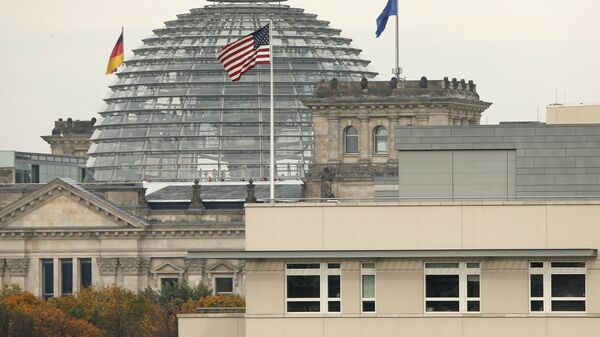Members of four parties represented in the German parliament, the Bundestag, have taken part in a conference titled “Five years of Russian sanctions - how do we get out of the mutual blockade?” suggesting that a critical look be taken at the economic pressure on Russia over its policy towards Ukraine.
The organisers, head of the East Committee of German Business Michael Harms and MP Klaus Ernst from the left-wing Die Linke party, who also chairs the Committee on Economic and Energy, have spoken out in favour of lifting sanctions amid problems being faced by German companies. Speaking to lawmakers, Harms pointed out numerous difficulties that firms, especially medium-sized enterprises, have to deal with if they want to enter the Russian market, ranging from legal reviews to meeting the increased regulations in Russia, which can take several months. Many decide to look for partners in other countries for "political reputation reasons".
He also noted that Russian partners often prefer to reorient towards China, turning their backs on their German counterparts over the lack of legal certainty. The gap between China, which is Russia’s leading trade partner now, and Germany, which comes in second place, has doubled, according to Harms.
Sandra Weeser, representing the opposition Free Democrats (FDP), noted that these sanctions are a necessary means of pressure, as they were a response to what she described as "blatant violations of international law", even though trade restrictions are against the spirit of the Free Democrats. Nevertheless, she noted that it’s possible to remove them if there is progress in the Minsk process.
Lawmaker from the Social Democratic faction Bernd Westphal, who is, however, also an advocate of sanctions pressure, spoke out more articulately in favour of lifting the restrictions.
"We Europeans need to be more independent and sovereign", he said.
According to the SPD lawmaker, after five years of sanctions, it's time to take the first step. He noted that the concrete implementation of a common EU line is possible within the framework of the EU Council, together with France.
Die Linke’s Klaus Ernst, who said that companies play a major role in sustaining world peace, estimated that Germany stands a good chance to raise the issue at the EU level. According to the politician, Berlin, which has been most affected by the sanctions, should be taken into account. He also linked lifting sanctions to EU policies against US extraterritorial sanctions, which have been hanging like a Sword of Damocles over European companies for several months. He argued that the unilateral restrictions should be rolled back, as the sanctions weaken Europe and Russia, playing into the hands of the US rather than being in European interests.
In an interview with Russia Today following the conference, Ernst also said that the sanctions have not fulfilled their purpose and have not resulted in the desired change in Russia’s policies.
A lawmaker from the other side of the political spectrum, Peter Ramsauer, representing the conservative Christian Social Union, proposed gradually reducing the sanctions. According to him, the union of "Berlin’s CDU (Christian Democratic Union)" and "Munich’s CSU (CDU’s Bavarian sister party)" was flexible enough for such a policy change.


